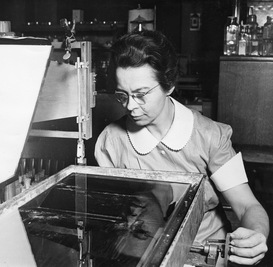
While this blog typically focuses on the personal or marketing side of fundraising and philanthropy, I found a very helpful article yesterday that addresses some of the technical planning and administrative aspects around charitable bequests.
Though it does cover more of the technical side, I found it fairly easy to follow and full of useful information for donors and for charities.
I've worked with a number of the lawyers at this firm and what stands out about them is how much they give in terms of free educational information - newsletters, conference presentations, informal conversations - to me their investment in helping fundraisers is a sign of their commitment to the charitable sector in Canada.
Thanks @CharityLawCan @EstatesLaw @SusanManwaring and the rest of the gang at @MTCharity !
Practical Considerations When Making a Charitable Gift by Will
Karen L. Weslowski, Vancouver
(Reprinted with permission from the June 2012 Miller Thomson Charities and Not-for-Profit Newsletter)
A legacy can be created by leaving all or a portion of a person’s estate to charity. Such a gift can reflect a testator’s personal values and beliefs while making a difference in the lives of others. However, in order to ensure that the charitable gift is realized, there are some things for a testator to consider before leaving an estate gift to charity. Once that gift is made, charities may wish to know what steps they must take to protect that gift.
The Requirement for a Proper Will
Without a proper Will, a person’s estate will pass on intestacy to their next of kin. However, before a person can make an estate gift to charity, their Will must make some provision for their dependants, if any.
In British Columbia, dependants include a testator’s spouse, minor children and, in most instances, adult children, even if they are financially independent. In most other Canadian provinces, the category of dependants is not as broad and includes spouses, minor children and adult children only if incapable. If a testator’s Will does not make adequate provision for these people, there is legislation in most provinces which permits dependants to commence litigation challenging the Will.
Litigation often results when family members are not informed about a testator’s intention to leave a charitable bequest. Testators should tell their family about their wish to leave an estate gift to charity. Although the charity has a duty to protect the gift, charities may be reluctant to engage in acrimonious and expensive litigation to do so.
The Will needs to be very specific about which charity the testators wish to benefit. For example, if the Will simply provides a bequest to the “diabetes society”, it may be challenged on the basis that the identity of the charity is unclear. This is due to the fact that there are several charities associated with diabetes. Even if the Will is not challenged, a court application may still be required to figure out which charity the testator intended to benefit. This will cost the testator’s estate money that could otherwise go to the charity and the estate beneficiaries.
The Charities’ Duty to Protect a Charitable Gift
Charities may become involved in estate litigation by virtue of being a beneficiary of an estate. Common issues that involve a charity are challenges to the Will, applications for interpretation of the Will and passing of the executor’s accounts.
Charities are not always sure what role, if any, they may have in estate litigation. As a beneficiary of an estate, a charity is entitled to notice of any estate proceedings which may affect its entitlement or require its consent. Charities are also entitled (or, in some instances, may be required) to fully participate in the litigation, including settlement of the proceedings.
Charities must ensure that their interests are protected under a Will and by the person administering the estate. Charities must take reasonable steps to ensure that a testator’s gift is realized. This includes monitoring the administration of the estate and making inquiries of the estate solicitor or executor as to the status of the estate. If necessary, it may also include taking active steps in any litigation to protect their interest in the estate.
The need to defend a donor’s charitable gift by becoming involved in litigation can affect the charity’s image. In a fight with disinherited family members, the charity may be perceived as “greedy”. Charities generally want to maintain a positive public image.
This consideration may affect how a charity conducts itself in litigation and cause it to be less assertive in defending a testator’s gift. Although charities have an obligation to defend the donor’s charitable gift, it may not be practical to do so where the amount of the gift is small relative to the cost of litigation. Charities may choose to decline a bequest where the public relations issues resulting from litigation would adversely affect the charity disproportionately to the value of the bequest.
Conclusion
Testators should strive for open communication with their dependants as to their intention to leave a gift to charity. This can assist in ensuring that their intended gift is realized and reduce the potential for litigation after the testator’s death. Charities must recognize their duty in protecting charitable gifts and take appropriate steps to that end.

 RSS Feed
RSS Feed
